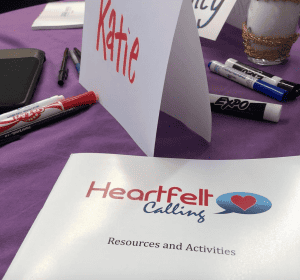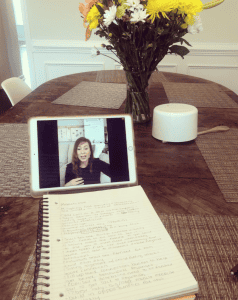
I’ve often heard the statistic referenced that says, “50% of foster parents will no longer be active within one year of their initial licensing.” As we know, recruiting and retaining great foster parents is an important task, so why do half of new foster parents not make it past the year mark?
Two factors that I believe play a large role in that figure are lack of support and lack of preparation. We know it takes a strong support system to come alongside foster families and help support them, but what about being adequately prepared for this life changing experience? At the core, being a foster parent is a different experience than anything else. Having raised kids or having experience around kids will certainly be helpful, but being a competent caregiver for children who have experienced trauma requires us to learn and do things differently.

Each state, region, and agency will have unique standards, but there is always some level of pre-service training (education or learning hours before welcoming children into your home) required to become a licensed foster parent. Having been licensed in two different states, we’ve seen the differences with one state requiring around 36 hours of pre-service training including CPR/First Aid, and the other state requiring 14 pre-service hours with no specification for CPR/First Aid. Typically, pre-service training will give an overview of many topics including child development, the effects of trauma, attachment, behavior intervention, etc.
I’ve often heard from fellow foster parents that even after the pre-service training, they felt unprepared to jump in and meet the kids where they are. Although there is no way to be totally prepared ahead of your first placement, and many things can only be learned by living it, making sure that new foster parents are well prepared is critical to helping more foster parents stick with it longer term. Good pre-service training helps new foster parents set accurate and realistic expectations. It should equip them with the real life tools and strategies they will need.

I would encourage prospective foster parents to seek out as much training as they can while working to become licensed. Do your homework, and go beyond the required minimum. Browse webinars, blogs, podcasts, and books from a variety of sources and perspectives. Listen to seasoned foster parents, former foster youth, adoptees, caseworkers and more. Learn about how trauma impacts children, some of the challenges to expect, and strategies to respond appropriately. Get familiar with the terminology used, the legal process cases follow, and local resources that may be helpful to the children in your home. Find out why it is important to honor a child’s culture and race and what practical steps you can take to do that in your home. Seek out training that focuses on the child’s perspective and learn how to help support the relationship with their family while they’re in your care. Join support groups and follow pages that will educate, encourage, and inspire you along your journey. By investing in yourself, you will be a more competent and effective foster parent and be able to advocate well for the children in your home.
Not only are there pre-service training requirements, there will be ongoing requirements to maintain your license. I would encourage foster parents to always keep learning, even beyond the minimum required hours and subjects. There is always something new we can pick up; whether it’s a fresh idea for a challenging behavior, or just the reminder of what children are feeling. When we commit to life-long learning it helps continually improve outcomes and ensures we’re able to handle (almost) anything we encounter. Even for seasoned foster parents, the opportunity to refresh your memory, and leave encouraged and renewed from a good training is worth it. It is also often at these ongoing trainings that you will be able to make connections, grow your support network, and be encouraged by fellow foster parents who understand things.

Because each case and child is so different, we can never truly know it all or have seen it all which is why always seeking out new information is important. When we view training as an opportunity to grow our tool box and in turn make managing tough behaviors easier, we may appreciate the offerings as more than just a pesky requirement to keep up with. Our commitment to continually learn and improve also says to the children and families we work with that this is deeply important to us and we are continuing to learn and grow, just as they are. A great suggestion for ongoing training hours is to look for offerings in subjects that you don’t feel as confident in or related to specific challenges of the children in your care. That could be caring for hair and skin different than your own, supporting marginalized groups in care, managing anxiety for kids in care, helping teens in care transition to adulthood, helping support strong family bonds, etc. There are so many great training topics out there!
When looking for training options, ask your family worker, licensing agency, and fellow foster parents for suggestions. Ensure the specific requirements for your situation with your worker and confirm various training options will be honored. There may be options facilitated by faith based organizations, various community partners, or in conjunction with local foster parent associations. There may also be options such as foster/adoptive conferences, watching foster care related films, reading related books, or even receiving training hours by attending support groups, review boards, court hearings, therapy appointments, and educational meetings.

One practical tip related to training is to scan copies of any training certificates you receive and keep a digital copy. This ensures if the original certificate is lost or misplaced you will not lose credit for those hours. This can also be helpful in keeping track of how many hours you have, and what subjects you’ve covered.
When we make a commitment to lifelong learning, we help change foster care for the better– and that’s something we can all agree is important.



